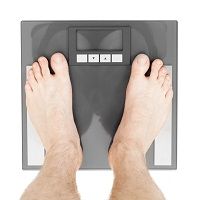Article
FDA Approves New Obesity Treatment Device
Author(s):
The US Food and Drug Administration (FDA) recently announced the approval of a device to help treat patients with obesity.

The US Food and Drug Administration (FDA) recently announced the approval of a device to help treat patients with obesity.
According to a statement from the FDA, the Maestro Rechargeable System “targets the nerve pathway between the brain and the stomach that controls feelings of hunger and fullness.”
The device is designed for patients 18-years-old and older who have not been able to lose weight through traditional methods and have a body mass index (BMI) of 35 to 45, and “at least one other obesity-related condition.”
Calling obesity and other comorbidities “major public health programs,” William Maisel, MD, MPH, deputy director for science and chief scientist at the FDA’s Center for Devices and Radiological Health, added, “Medical Devices can help physicians and their patients to develop comprehensive obesity plans.”
The Maestro system is an electrical pulse generator, which includes wire leads and electrodes that are implanted into a patient’s abdomen. Pulses are sent to the abdominal vagus nerve, which the statement noted, “is involved in regulating stomach emptying and signaling to the brain that the stomach feels empty or full.”
Known as vagal blocking therapy (VBLOC), a statement from EnteroMedics, the manufacturer, said the device will be available “on a limited basis, at select Bariatric Centers of Excellence,” in 2015.
“VBLOC Therapy offers an entirely new approach to the treatment of obesity,” said Scott Shikora, MD, FACS, EnteroMedics’ Chief Consulting Medical Officer. “By blocking signals along the nerves that connect the brain and the stomach, VBLOC reduces feelings of hunger and promotes earlier feelings of fullness, which can help people with obesity reduce the number of calories consumed and promote safe, healthy and durable weight loss.”
Patients and their healthcare providers work together to determine how and when the device should be used and can adjust the settings to the individual person’s needs.
Caroline M. Apovian, MD, FACP, FACN, a professor of medicine at Boston University School of Medicine, and Director, Nutrition and Weight Management at Boston Medical Center said the device can be a useful tool in obesity which she called “a global pandemic with far-reaching cost and consequences to both public and personal health.”
“From diet and exercise to bypass surgery, existing treatment options have failed to stop the advance of this disease. The Maestro System adds a safe and effective new weapon to our armamentarium, offering the patient a treatment option that does not physically restrict or alter the anatomy, and is reversible.”
Joe Nadglowski, Obesity Action Coalition President and CEO also hailed the approval in the statement. “There is no ‘one-size-fits-all’ approach to treating the disease of obesity. We believe strongly that expanded treatment options are essential to individuals affected by obesity, so that along with their healthcare provider, they can make an informed decision on which option, or options, may work best to improve their health.”
EnteroMedics’ President and Chief Executive Officer Mark B. Knudson, PhD, added, “The Maestro System fills a significant gap in the currently available treatment options, offering clinically meaningful weight loss without the fear or many of the side effects associated with existing bariatric options.”
Studies involving the device included 233 patients with a BMI of at least 35. Of that group 157 were treated with an active device while 76 had inactive devices. After one year of treatment the group with the active Maestro lost 8.5% more weight. Just over 52% of the patients in the “experimental” group lost at least 20% of their excess weight and 38.3% lost at least 25% of their excess weight.
The FDA statement also noted that the study did not meet its originally designated endpoints, which had intended for the experimental group to lose at least 10% more of the excess weight than the control group.
An FDA advisory panel, however, “found the 18-month data supportive of sustained weight loss, and agreed that the benefits of the device outweighed the risks for use in patients who met the criteria in the device’s proposed indication.”
While the device has been approved for usage a 5-year post approval study will be conducted involving at least 100 patients looking at areas including weight loss, adverse events, and surgical revisions.
In the original study reported adverse events included nausea, pain at the neuroregulator site, vomiting and surgical complications. Other reported issues included heartburn, problems swallowing, belching, mild nausea, and chest pain.




